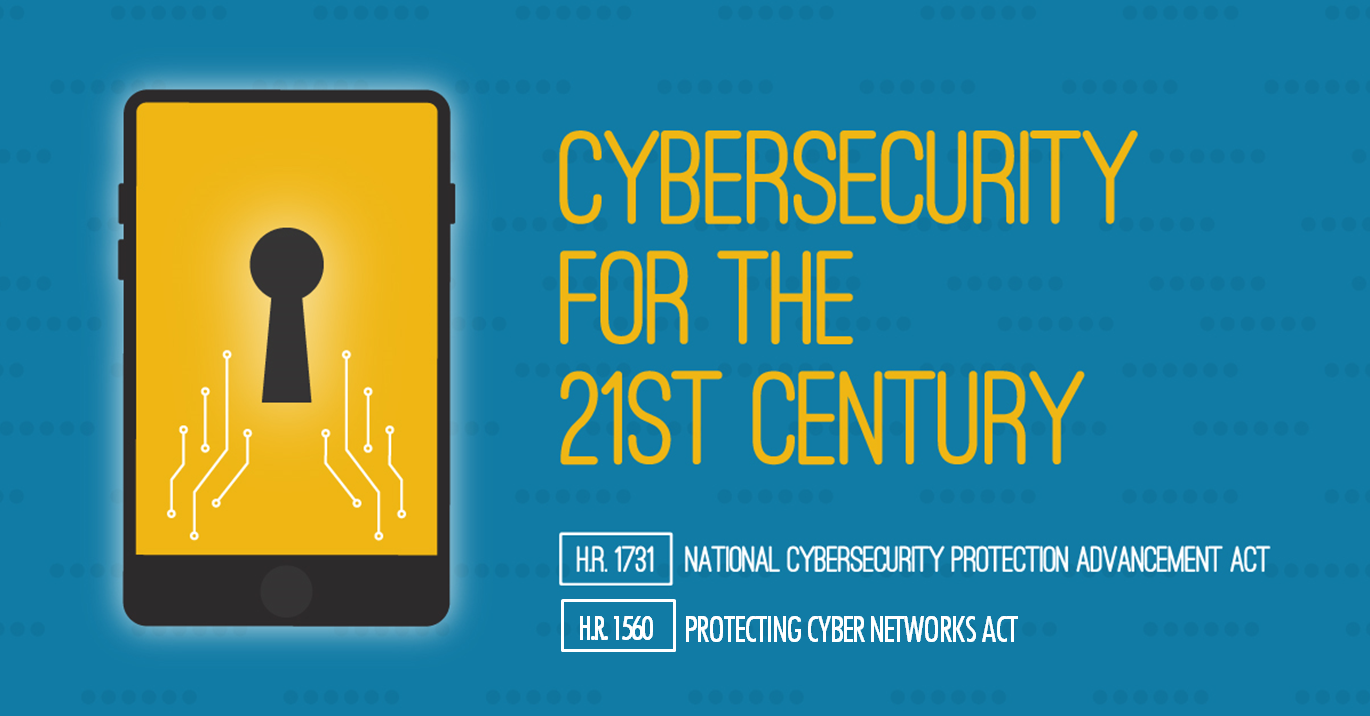Blog
The Digital Battleground
Washington,
April 28, 2015
In the 21st Century, attacks from nations like China and Russia and unsavory actors like ISIS have gone digital. Those who seek to harm U.S. interests are using increasingly sophisticated cyber attacks, compromising internet accounts and networks to steal our personal information and shut down our national commerce. These events not only cause disruptions online, but seek to disable our national infrastructure and commerce. In 2014, several cyber attacks targeted consumers, private companies, national infrastructure, the military and Pentagon, and sensitive government information. Hackers stole credit and debit card data from 40 million accounts at Target. Russian hackers penetrated the State Department’s cyber network to reach sensitive parts of the White House computer system. Anthem, one of the nation’s largest health insurers, suffered a cyber attack that compromised personal records for nearly 80 million customers and employees. READ: Cyber Attacks on U.S. Companies in 2014 Cyber and security experts agree: as new threats and hacks continue to emerge, sharing cyber data and possible threats is one of our best tools against cyber criminals. This week, the House of Representatives passed two important pieces of legislation to address cyber risks, the National Cybersecurity Protection Advancement Act and the Protecting Cyber Networks Act. Facets of this legislation include: • Voluntary Participation: Nothing in this legislation requires a company or individual to share cyber information, threat indicators, or defensive measures with the government. • Restricted Information Sharing: This legislation restricts sharing to information that is only directly related to cyber attacks and network defensive measures. • Privacy Protections: Strengthened privacy protections require multiple layers to scrub all personal identifiable information, both from companies sharing information and from the government for any cyber information it receives. • Strong Oversight: Strong congressional and public oversight includes biennial reports from the Privacy and Civil Liberties Oversight Board on legislative impacts and the Inspectors General on federal activities. These bills passed the House of Representatives with overwhelming majorities and bipartisan support. Notably, the bills include stronger and more numerous privacy protections compared to previous versions of cybersecurity legislation in years past. As technology expands in the Information Age, we must continue to protect our timeless civil liberties while simultaneously ensuring that our e-commerce, cloud computing, and networked infrastructure remain free and secure. |


